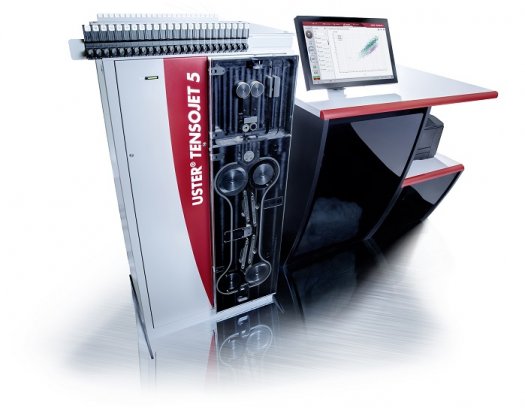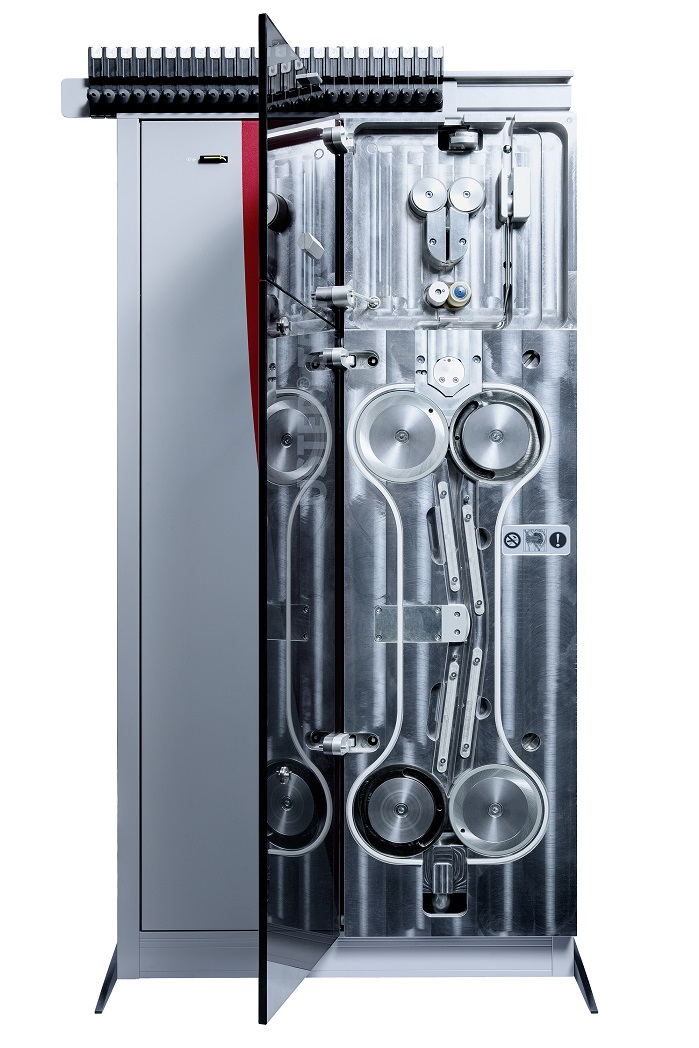
Uster appoints new Head of Textile Technology
Uster, a leading high-technology instrument manufacturer, is introducing its new Uster Tensojet 5, tensile tester for yarn.

25th June 2018
Innovation in Textiles
|
Uster
Uster, a leading high-technology instrument manufacturer, is introducing its new Uster Tensojet 5, tensile tester for yarn. “With the launch of the Uster Tensojet 5, the concept of tensile testing is extended to provide a total package: precise measurement of a yarn’s strength, combined with reliable protection against quality claims based on accurate forecasts of performance in later processes,” the manufacturer explains.
“A priority for any yarn is the ability to withstand downstream processes – without causing stoppages or affecting production efficiency. Whatever the fabric application, it is high-speed weaving and knitting which exert the greatest stress and strain forces on the yarn. So, its strength and elongation properties must be suitable for the fabric-making process, as well as for the ultimate end-use.”
“Minimum strength and elongation properties are needed to prevent a yarn breaking or being damaged in downstream operations, as well as avoiding blemish on end-products in weaving. So accurate tensile-strength values are important, particularly for warp yarns, which are placed under tremendous stress.”
For decades, Uster has been providing laboratory instruments for strength and elongation measurement of staple, as well as filament, yarns. In 2018, a new generation has been launched. The Uster Tensorapid 5 tensile tester providing precise data, was introduced in March.
“Now, the most powerful and comprehensive tensile tester ever is introduced: the Uster Tensojet 5 can operate at speeds of 400 m/min and integrates with the Total Testing Center to deliver a new range of overall benefits to both quality assurance and profitability for yarn manufacturers,” the company says.
The high speed of 400 m/min is said to simulate the dynamic stress on the yarn during weaving, making the Uster Tensojet 5 a unique tensile measuring system, according to the manufacturer. “It is the standard for prediction of Weavability by giving an accurate forecast of yarn behaviour in subsequent processing, especially on high-performance weaving machinery. Fewer weak places in the yarn mean higher efficiency on downstream machines. The prediction of Weavability increases economic efficiency, as well as weaving quality and profit margins,” the company reports.

The Uster Tensojet 5 performs 30,000 tests per hour, producing accurate data through this rapid measurement. Utilising this great volume of data is what makes it possible for the system to predict weak places in the yarn, the company adds. “ Seamless correlation with Uster Statistics benchmarks makes Uster’s Weavability System an essential instrument to minimise claims and to drive producers towards higher profitability.”
Ultimate process control comes with the connection to Uster Tester 6. The integration of results with Uster Tester 6 allows users to profit from intelligent alarms through the Total Testing Center. Smart reports integrate results from both evenness and tensile tests, providing an overview of the quality being produced. Data analysis through connected laboratory instruments allows fast decision-making by the mill, to guarantee customer satisfaction with the yarns being delivered.
Through the Total Testing Center, it is possible to obtain clear visualisations of weaving performance. This is provided in the form of objective grades, predicted by a combination of strength testing parameters from Uster Tensojet 5 and yarn quality parameters from Uster Quantum 3 yarn clearers – then collated and interpreted by the Total Testing Center. The weaving performance information is ranked on a scale from one to five Qs (grades) to allow spinners to identify batches with a high risk of yarn breaks during weaving – and to avoid complaints to a large extent.

Business intelligence for the fibre, textiles and apparel industries: technologies, innovations, markets, investments, trade policy, sourcing, strategy...
Find out more